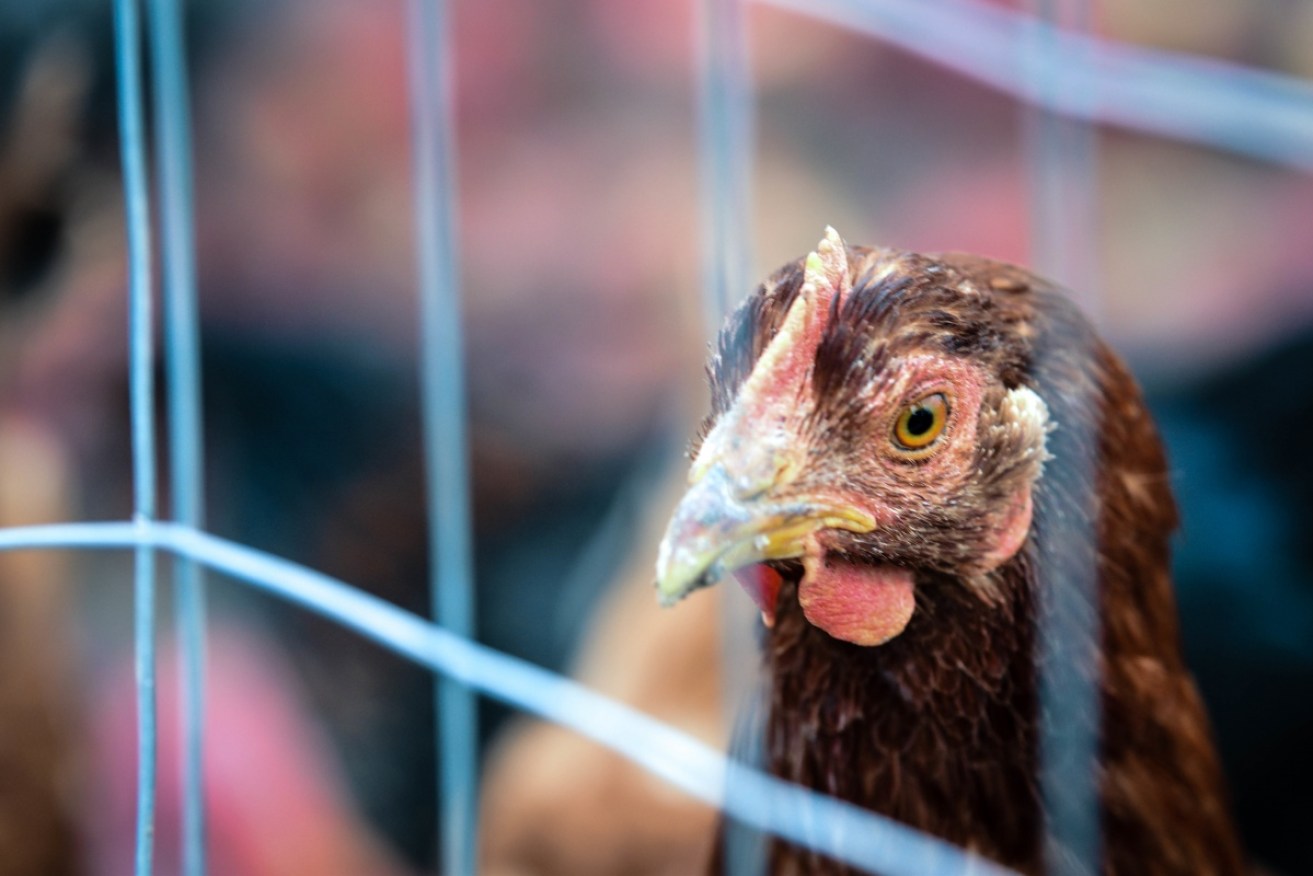Australia detects first human case of bird flu


Authorities say the bird flu outbreak at the Victorian farm is not the deadly H5N1 strain. Photo: Getty
Australia’s first human case of bird flu, also known as the H5N1 infection, has been detected in a child.
The confirmation came as a Victorian egg farm was plunged into lockdown on Wednesday after avian influenza was detected after the deaths of several chickens.
Victoria’s chief health officer, Dr Clare Looker, said the child contracted the severe infection in India and was unwell in March. They have since made a full recovery.
“There is no evidence of transmission in Victoria and the chance of additional human cases is very low as avian influenza does not easily spread between people,” she said.
Looker said contact tracing had identified no further cases of the H5N1 infection.
A human case of avian influenza A(H5N1) infection, also known as “bird flu”, has been reported in Victoria.
There is no evidence of transmission in Victoria and the chance of additional human cases is very low as avian influenza does not easily spread between people.
1/2 🧵 pic.twitter.com/eQyjurI4P6
— Victorian Department of Health (@VicGovDH) May 22, 2024
Earlier on Wednesday, the poultry farm near Meredith, about 40 kilometres north-west of Geelong, was locked down as testing began.
Agriculture Victoria later confirmed it was not the highly pathogenic H5N1 strain, which is spreading globally, causing widespread outbreaks and deaths in bird populations.
Victoria’s chief veterinary officer, Dr Graeme Cooke, said the outbreak likely involved H7N7, the most common strain in Australia.
“There is a type of virus which is causing great concern in the USA and other parts of the world and has behaved unusually in that it has infected dairy cattle and some other marine mammals,” Cooke told the ABC’s Country Hour on Wednesday.
“This is not the strain that we’re dealing with. This is a strain that’s occurred in Australia before. It’s likely not new.”
One of the strains in Australia’s last bird flu outbreak in 2020, which affected one in three egg farms in Victoria, was an H7. Testing is under way to determine if the latest outbreak is the same.
“Agriculture Victoria is responding with staff on the ground, supporting the business with further laboratory investigations as necessary,” Cooke said.
The property has been placed into quarantine with a five-kilometre radius. Affected animals will be “depopulated”.
Samples of the virus have been sent to the Australian Centre for Disease Preparedness in Geelong for testing.
Avian influenza is a highly contagious viral infection that can cause severe symptoms and sudden death in domestic poultry, wiping out entire populations.
Until Wednesday, Australia was the only continent where the H5N1 strain had not been found.
Wild birds are the natural host for the disease and it can spread through close contact or contaminated environments.
Chickens, ducks, geese, turkeys, guinea fowl, quail, pheasants, emus and ostriches are most susceptible to being affected by avian influenza.
All bird species are thought to be susceptible to the deadly H5N1, which has also been detected in more than 50 mammal species, including humans.
Infected people have reported symptoms ranging from asymptomatic or mild to severe illness.
Authorities have reassured the public that eggs and poultry products in supermarkets pose no risk and are safe to consume.
Bird owners have been reminded to keep enclosures clean, quarantine new birds before integrating them with existing flocks, ensure footwear is clean, and to always wash hands before and after handling birds or eggs.
Cooke urged poultry farmers, backyard flock and bird owners to report unexplained bird deaths to the Emergency Animal Disease Hotline or their local vet.
The risk to Australia has increased following outbreaks of the H5N1 strain worldwide and the annual migration of wild birds remains a risk for Australian species.
There have been nine outbreaks of highly pathogenic bird flu in Australian farms between 1976 and 2021.
The most recent was in 2020 and 2021, where three strains of bird flu were detected at six Victorian poultry farms.
-with AAP







